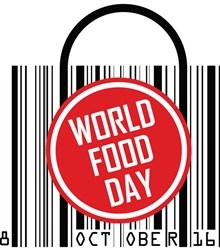"The world's population is growing relentlessly. In fact, according to studies carried out by the UN, it is set to increase to around 9-billion people by the year 2050," says Klaus Eckstein, CEO for Bayer South Africa. "This means that the demand for food will continue to grow and long-term commitment to driving food quality and food security should be a top priority on the development agenda. In fact, in order to eliminate hunger, the agricultural and science communities need to work together to cultivate solutions that will provide the world with safe, nutritious and plentiful food sources for years to come.
"Through our experience in Africa, we have identified that the key is to develop an emerging farmer community to become sustainable commercial farmers which contribute to the value chain. This development needs to be driven by mutual engagement in partnerships with various businesses along the value chain. This is our opportunity to contribute with integrated crop solutions with a clear value proposition to the grower and to meet the demands of high quality food," explains Eckstein.
Productivity can be increased sustainably through targeted support
Around the world, and particularly in Africa, small farmers not only provide for their families, but also contribute to feeding the global population. Their productivity can be increased sustainably through targeted support, especially in emerging markets. In fact, in many African countries, small farms make up the majority of agricultural enterprises. They supply two billion people - almost a third of the world's population. Much greater use could be made of their potential in the global context, especially if we consider that the African continent holds approximately 45% of the world's agricultural reserve with 202 million hectares of arable land that is still uncultivated.
Bayer is committed to supporting small farmers that think and act as entrepreneurs. By acknowledging and embracing the interconnections and complexities of our food systems and including all stakeholders in finding sustainable solutions, we can support these businesses and considerably help alleviate hunger and poverty in the world. Bayer CropScience expertise goes beyond the offering of integrated crop solutions and are a position to consult on issues related to good agricultural practice, environmental protection and food security. After all, those factors also play a key role in sustainable agriculture suited to local conditions. "We are active and want to become even more involved in these efforts. We are therefore working closely with farmers, our customers and partners along the entire value chain," adds Eckstein.
To produce more food in a more efficient and sustainable manner
Climate change has also been identified as a challenge. In some places, droughts are causing crop failure, while flooding and storms are battering the fields we rely on for food. Eckstein says, "Realistically, the only way forward is to produce much more food from what land we have left in a more efficient and sustainable manner. For that to happen, crop protection products are crucial. They've already proven their value by doubling the yields of crops such as corn, rice, and potatoes. And we know we can take their potential much further."
"We are facing an immense challenge and we believe that it is time for a paradigm shift in agriculture to safeguard global food security with innovative solutions that are sustainable and minimise the environmental footprint of farming - focused on innovation, enabling farmers big and small and driving a sustainable intensification of agriculture. World Food Day is a reminder of this plight," concludes Eckstein.






































